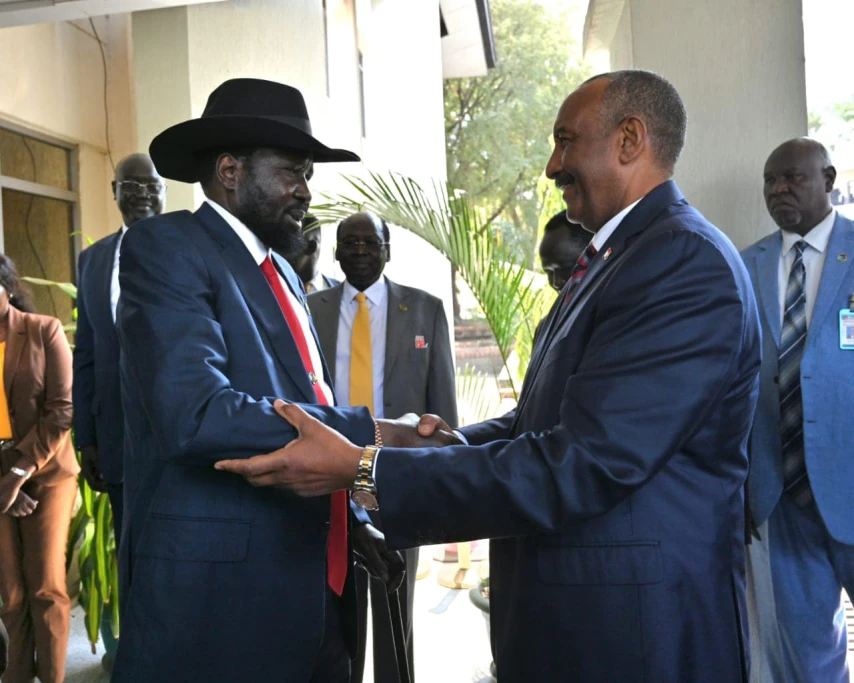
South Sudan and its neighboring Sudan have agreed to form a joint border security to safeguard free movement of people, goods, and services – which the two countries also agreed upon.
For years, insecurity at the border between Sudan and South Sudan remains a major threat to the stability of the two countries.
Grazing land dispute between the Misseriya tribes of Sudan in Darfur region and the Northern Bahr el Ghazal residents, causing deadly attacks.
Similar incidents often occur between the Ngok Dinka and messeriya tribesmen in Abyei, with the latest clashes recorded in March 2022 when suspected Misseriya assailants killed at least 27 people there.
On Thursday in a one-day working visit of the Sudanese Head of Sovereign Council, Abdel Fattah Al Burhan, to Juba where he met President Salva Kiir over the 2012 Cooperation Agreement and agreed to establish a joint border security
Before South Sudan gained its independence in July 2011, several outstanding issues remained implemented during the six-year interim period.
In September 2012, shortly after the Panthou/Heglig war, the two countries signed the deal in Addis Ababa to address them after independence. These cross border trade, movement, residence, property ownership and work.
Juba and Khartoum also agreed to address the status of nationals of both countries in each state, border, and cooperation on central banking.
In the meeting held in Juba, President Salva Kiir and Abdel Fattah Al Burhan recommitted to the September 2012 Cooperation Agreement.
The heads of state emphasized on the importance of maintaining stability and security along the border to promote peace and prosperity the two countries.
“…they agreed to establish joint security force to prevent the infiltration of illegal weapons and to combat negative forces and their activities along the common border,” partly reads a joint statement from the ministries of foreign affairs.
The deal was signed between President Salva Kiir and the then Sudanese President Omar Bashir and witnessed by Thabo Mbeki – chairperson of AU High Level Implementation Panel, and Haile Mariam Dessalegne, Ethipoian Prime Minister and head of IGAD.